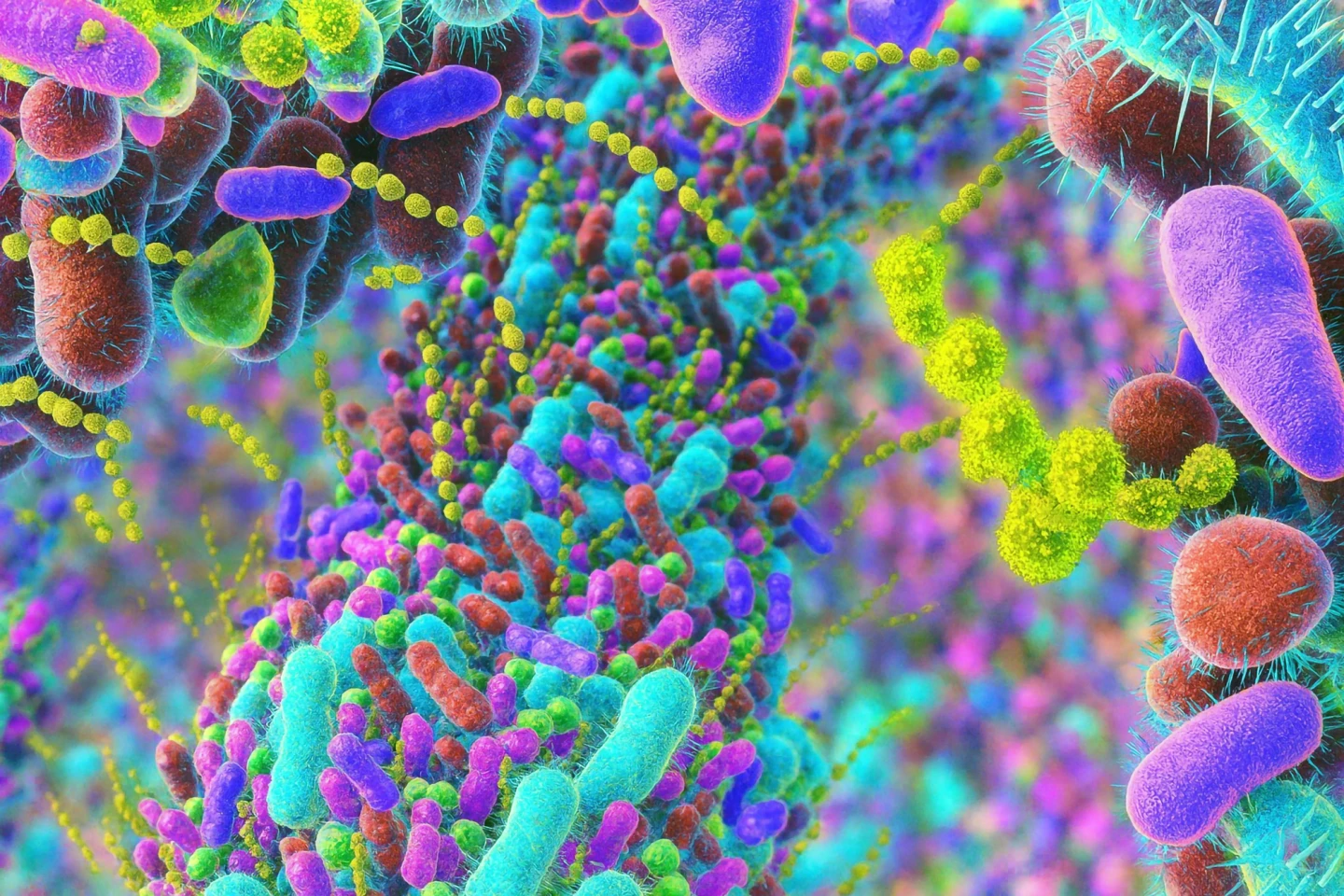A high-fat, low-carb ketogenic diet may protect the brain from early Alzheimer’s disease changes in people genetically at risk, new research suggests, by rebalancing gut bacteria and restoring brain energy metabolism.
People who carry the APOE4 gene variant have the highest genetic risk for developing Alzheimer’s disease (AD). Long before symptoms appear, APOE4 carriers show impaired brain glucose metabolism, changes in gut microbiome composition, and higher oxidative stress or cellular “rusting.”
New research led by University of Missouri (MU) researchers has examined whether a ketogenic, or keto, diet, which shifts the body’s energy source from glucose to ketones, could improve brain metabolism and gut health in young “at-risk” APOE4 mice.
“When we eat carbs, our brains convert the glucose into fuel for our brains, but those with the APOE4 gene – particularly females – struggle to convert the glucose into brain energy, and this can lead to cognitive decline down the road,” said MU doctoral student Kira Ivanich, the study’s lead author. “By switching to a keto diet, ketones are produced and used as an alternative fuel source. This may decrease the chance of developing Alzheimer’s by preserving the health of brain cells.”
The researchers took 59 genetically engineered male and female mice that expressed either the APOE3 (neutral risk) or APOE4 (high risk) human gene variant. The mice were fed either a control diet or a ketogenic diet for 16 weeks, starting at 12 weeks old. The researchers then used shotgun metagenomics to measure changes in gut microbiome composition and diversity, and targeted brain metabolomics to quantify hundreds of brain metabolites linked to energy production, neurotransmitters, and oxidative balance. Statistical correlations were used to explore how specific gut microbes related to chemical changes in the brain. The keto diet used comprised 75% fat, 8.6% protein, and just over 3% carbohydrates.
APOE4 female mice on a normal diet had reduced gut bacterial diversity, a marker of poor gut health. After 16 weeks on the ketogenic diet, diversity was restored. The keto diet was associated with increased beneficial Lactobacillus bacteria and fewer potential harmful ones, such as Bacteroides intestinalis. These Lactobacillus species were linked to higher levels of healthy brain metabolites, while Bacteroides intestinalis was linked to lower levels.

APOE4 mice on the control diet had lower levels of key brain metabolites, including TCA cycle intermediates (critical for mitochondrial energy production), neurotransmitters such as glutamate, GABA, and dopamine, and antioxidants. The keto diet restored these deficits, particularly in female APOE4 mice, normalizing most metabolites to APOE3 levels.
Female APOE4 mice showed the strongest positive response to the keto diet. Male mice and APOE3 mice also showed gut microbiome changes, but less brain metabolic improvement. This points to sex-specific metabolic vulnerability in APOE4 carriers, and a greater benefit from interventions like the keto diet among females.
The study has some limitations. The most obvious being that mice were used, so results can’t be directly applied to humans yet. Brain metabolites were measured relatively, not in absolute concentrations. It was correlational, showing associations but not proving cause and effect between diet, microbes, and brain chemistry. And, the study didn’t test behavior or cognition, so we don’t know if the metabolic improvements translate to better memory or function.
Nonetheless, the findings highlight the impact that nutrition can have on health, and highlights the importance of personalized medicine.
“Instead of expecting one solution to work for everyone, it might be better to consider a variety of factors, including someone’s genotype, gut microbiome, gender and age,” said corresponding author Ai-Ling Lin, a professor in MU’s School of Medicine. “Since the symptoms of Alzheimer’s, which tend to be irreversible once they start, usually appear after age 65, the time to be thinking about preserving brain health is well before then, so hopefully our research can offer hope to many people through early interventions.”
The study was published in the Journal of Neurochemistry.
Source: University of Missouri






